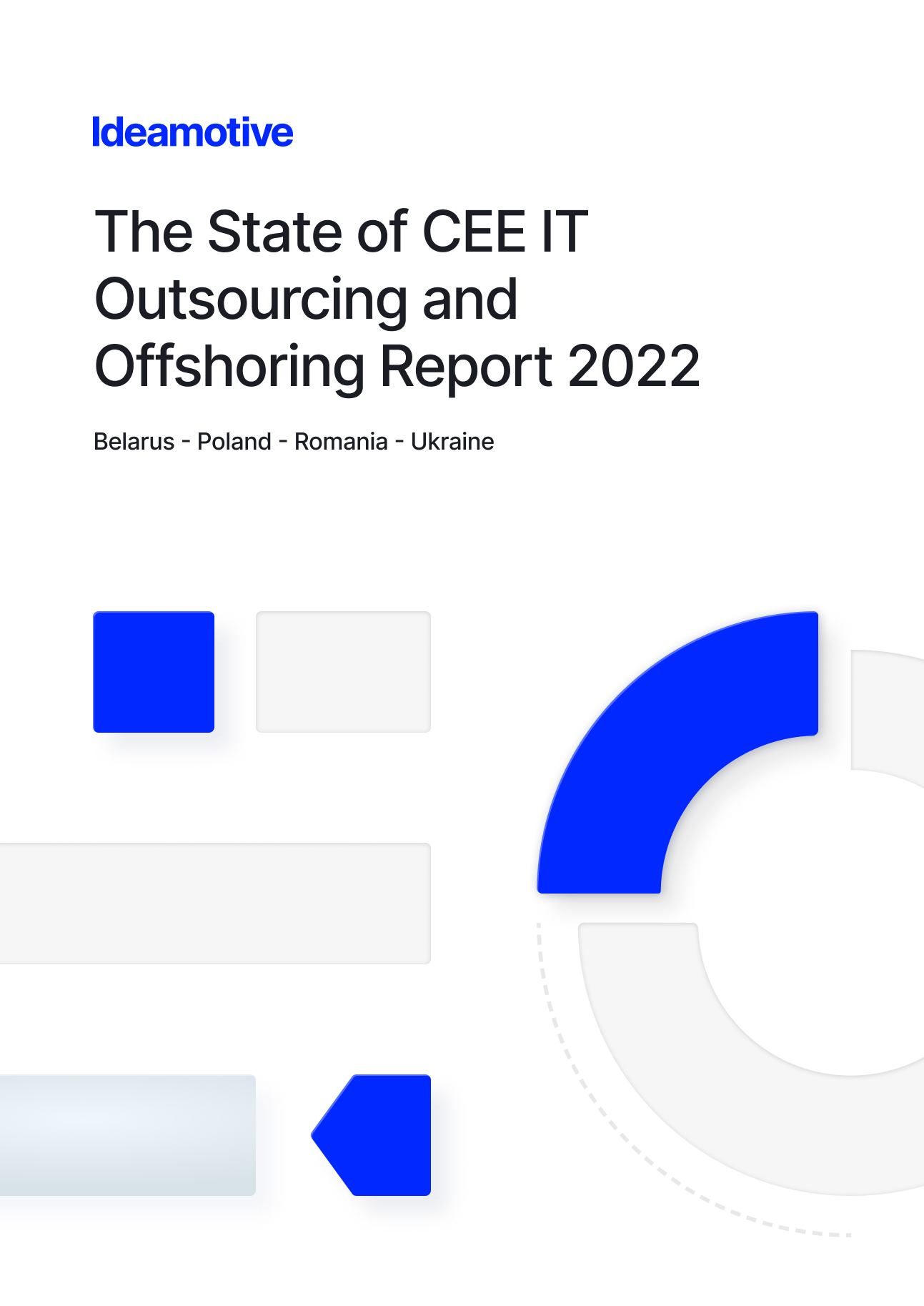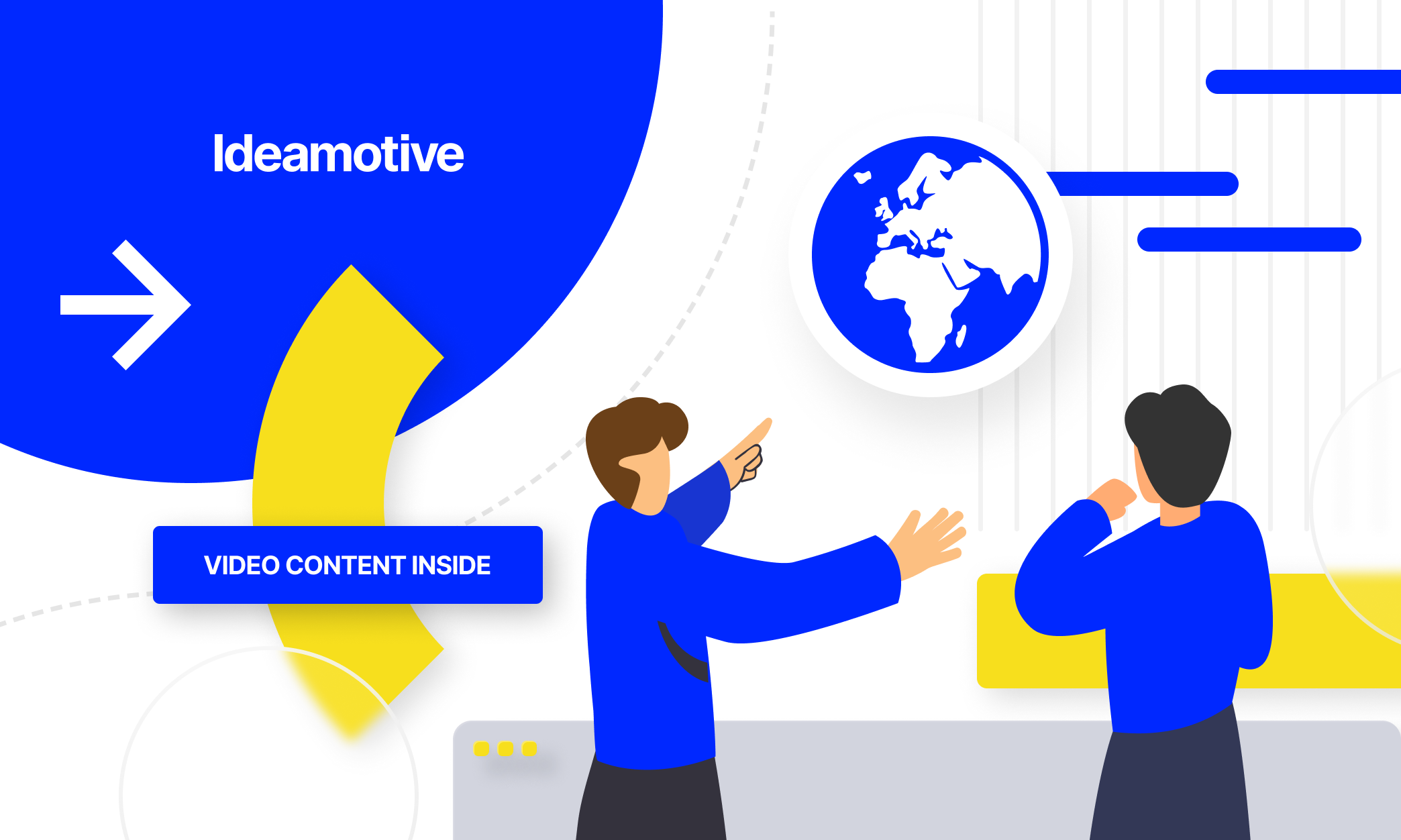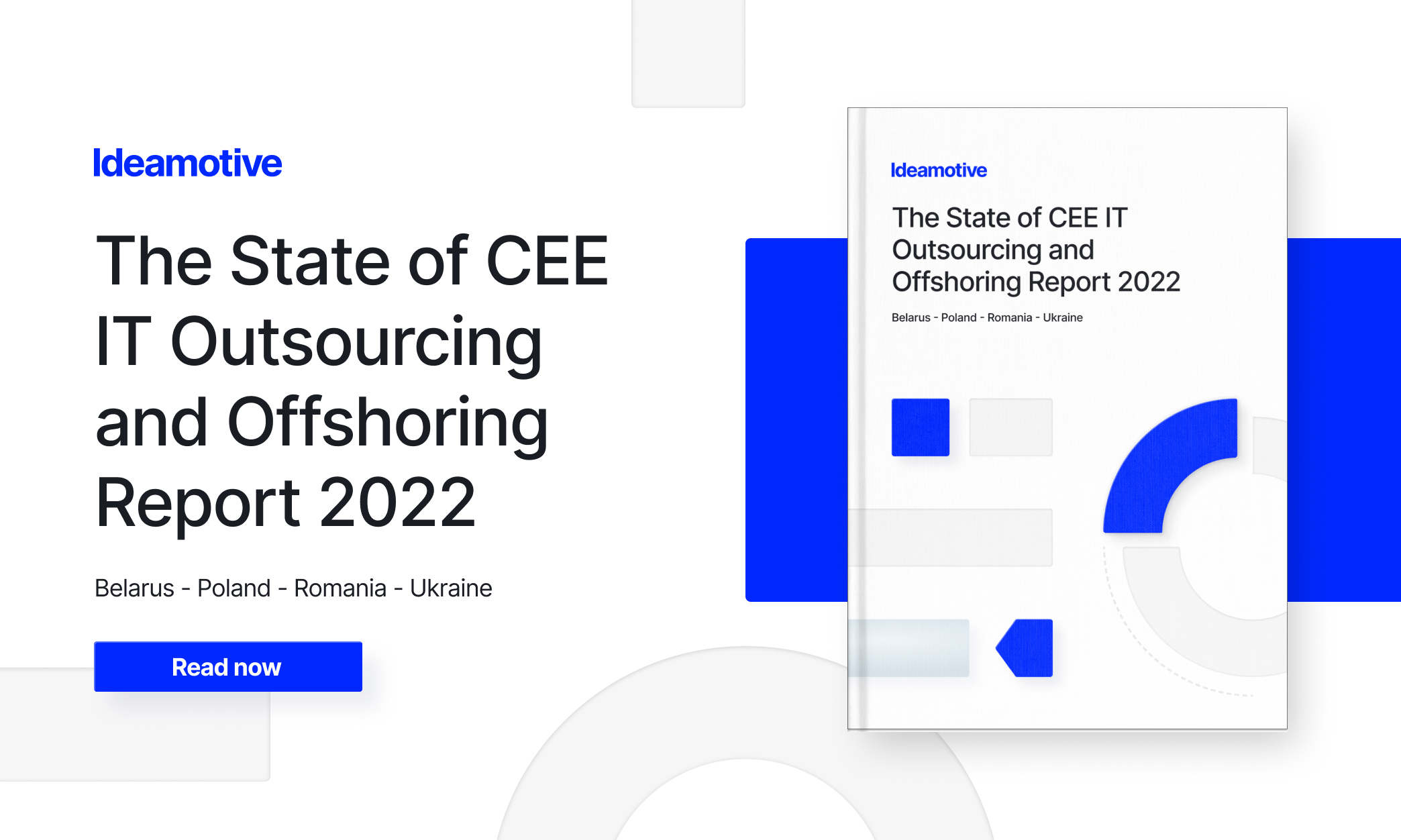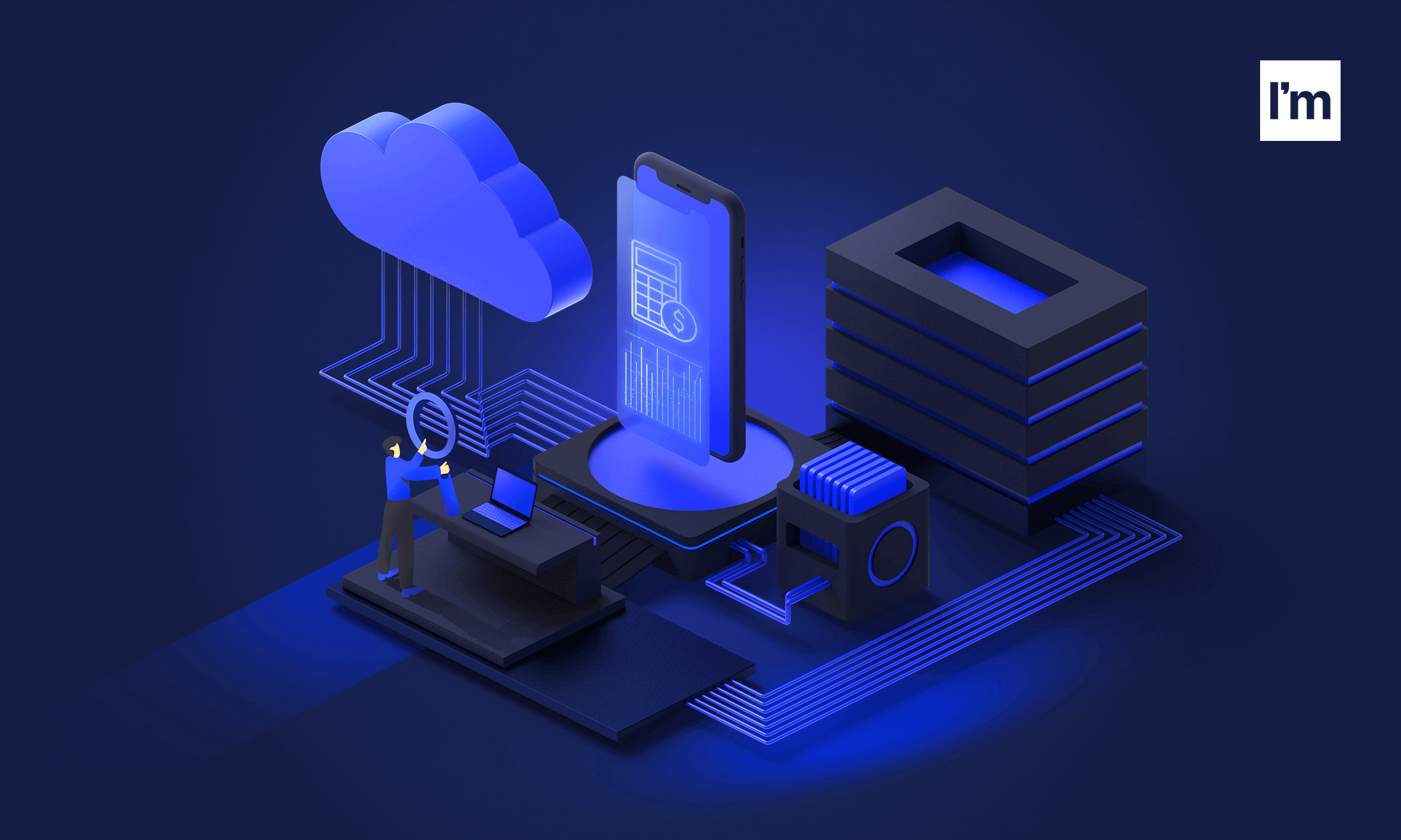Digital transformation is critical in today's business landscape as companies strive to adapt and succeed in the digital age. So it is when technology transforms business processes, models, and customer experiences. A critical aspect of digital transformation trends in 2023 is adopting a multi-cloud architecture, leveraging multiple cloud services from different providers to maximize efficiency, flexibility, and scalability.
The role of artificial intelligence (AI) in driving digital transformation initiatives is vital, especially in a multi-cloud architecture.
.png?width=2088&height=1392&name=AI%20market%20size%20worldwide%20in%202021%20with%20a%20forecast%20until%202030%20(1).png)
Digital transformation initiatives are a matter of market survival for any business. Speed is everything in the digital age. So it comes down to whether your customers are waiting to get a service, product, or anything else they want instantly. The initiatives create a positive customer experience and build the value of your brand in customers' minds.
Understanding Multi-Cloud Architecture And Its Benefits
Multi-cloud architecture is a contemporary approach to cloud computing that revolutionizes how cloud services are integrated into companies' business processes. Unlike traditional cloud computing models that rely on a single cloud provider, multi-cloud architecture leverages multiple cloud platforms from different providers simultaneously. This innovative business strategy enables streamlining operations, improving performance, and maintaining a constant supply chain.
So what are the benefits for companies that choose a multi-cloud architecture?
- Improved resilience and reliability: a multi-cloud architecture promotes redundancy and mitigates the risk of service interruptions. By distributing workloads across multiple cloud providers, companies can ensure that if one provider experiences an outage or performance issue, the others can seamlessly take over its tasks, minimizing downtime and maximizing business continuity;
- Cost optimization: selecting cloud services based on cost efficiency. Companies can choose providers that offer competitive pricing models for specific workloads or geographic regions. By taking advantage of pricing differentials and optimizing resource allocation, companies can achieve significant cost savings without compromising performance or reliability;
- Scalability and flexibility: The multi-cloud architecture enables effortless scaling of operations. You can distribute workloads across multiple providers, enabling elastic resource allocation and seamless scalability. This flexibility allows for to manage of variable workloads and dynamically adjust resources as needed to ensure optimal performance and user experience;
- Vendor diversity and bargaining power: Including multiple cloud vendors gives business the upper hand in negotiations. By avoiding vendor lock-in, companies maintain a healthy competitive environment, drive innovation and benefit from favorable terms;
- Geographic reach and compliance: Choosing cloud providers with data centers in multiple locations. It allows you to comply with regional data regulations and optimize latency by hosting applications and data closer to end users. In addition, this provides redundancy across different regions. It helps those companies which employees have remote work or hybrid work;
- Innovate and avoid technological stagnation: Using multiple cloud providers promotes innovation and prevents technological stagnation. When companies leverage innovative services and capabilities from multiple providers, they can experiment, leverage new technologies, and adopt new paradigms without being limited to a single provider's offerings. This flexibility and exposure to evolving technologies foster innovation and ensure the future viability of companies in a rapidly changing digital landscape.
Artificial Intelligence For Multi-Cloud Architecture
Integrating artificial intelligence (AI) and machine learning algorithms into multi-cloud architecture holds immense potential for optimizing various aspects of cloud environments. By leveraging AI, businesses can:
- improve workload management,
- strengthen security measures,
- monitor performance more effectively,
- improve digital experiences,
- meet customer expectations.
Below is an overview of how AI can help optimize multi-cloud architectures:
- Workload management: AI algorithms can analyze business models and real-time data on resource usage, network traffic, and application performance across multiple cloud platforms. AI-powered workload management enables streamlining operations, improvement performance, and optimizes costs by using resources as efficiently as possible;
- Security and compliance: AI is essential for strengthening security measures in multi-cloud environments. AI-powered security tools can continuously monitor network traffic, detect anomalies, and identify potential security threats across multiple cloud platforms. Machine learning (ML) algorithms can analyze patterns, detect malicious activity, and trigger automated responses to mitigate risks. Besides, AI can automate compliance audits and ensure adherence to privacy and security regulations;
- Performance monitoring and optimization: AI-driven performance monitoring tools can collect and analyze massive amounts of data related to application performance, infrastructure health, and user experience across multiple cloud providers. Using machine learning algorithms, staff can identify performance bottlenecks, predict system failures, and proactively optimize performance. AI can provide valuable insights into the root causes of performance issues, enabling to take immediate corrective action and ensure an optimal user experience;
- Automation and intelligent analytics: AI enables intelligent automation of tasks in multi-cloud environments. By automating routine operations, companies can reduce manual effort, minimize human error, and improve operational efficiency. AI-powered automation can streamline provisioning, deployment, scaling, and configuration management across multiple cloud platforms. In addition, intelligent AI-powered analytics is data-driven digital technology that analyzes massive amounts of data from various cloud providers. It uncovers patterns and generates actionable insights to make informed decisions and drive continuous improvement. It is also used in customer data platforms (CDP) to improve customer experience;
- Predictive maintenance and cost optimization: AI and machine learning algorithms can predict and prevent potential problems in multi-cloud environments. By analyzing historical data and identifying patterns, AI can predict system failures, identify areas for improvement, and enable proactive maintenance. This predictive maintenance approach minimizes downtime, improves reliability, and reduces the costs associated with reactive troubleshooting and emergency fixes. In addition, AI can analyze cost patterns across multiple cloud providers, optimize resource allocation, and provide recommendations to achieve cost optimization goals.
Examples of AI-powered tools and technologies that support a multi-cloud architecture include:
- Intelligent automation platforms: These platforms use AI to automate various tasks such as workload provisioning, resource scaling, and configuration management across different cloud providers;
- Intelligent analytics and monitoring solutions: AI-driven analytics tools can analyze data from multiple cloud platforms and provide insights into performance, resource utilization, and user experience. These tools can detect anomalies, predict potential problems, and provide actionable recommendations;
- Predictive maintenance systems: AI-powered predictive maintenance systems analyze data from multi-cloud environments to predict system failures, detect performance degradation, and trigger proactive maintenance actions;
- Security and compliance solutions: AI-powered security tools use machine learning algorithms to detect threats, analyze security logs, and automate responses to potential breaches. They also help automate compliance audits to ensure privacy and security regulations adherence;
- Intelligent resource allocation tools: AI emerging technology can optimize resource allocation across multiple cloud providers based on workload requirements, cost considerations, and performance needs to ensure optimal resource utilization and cost efficiency.
- Chat GPT
- IBM Cloud Pak for Business Automation
- Automation Anywhere Automation 360
- UiPath Business Automation Platform
- WorkFusion Enterprise
- Microsoft Power Automate
- SS&C Blue Prism Cloud
- Blue Prism
How Chat GPT Can Help With Digital Transformation Initiatives
Chat GPT can provide valuable assistance with digital transformation initiatives in several ways:
- Information and Insights. Chat GPT can provide up-to-date information and insights on digital technologies, trends, and best practices. Whether you need information on cloud computing, artificial intelligence, data analytics, or other relevant topics, Chat GPT can help you stay informed and make informed decisions;
- Strategy development. It can help you develop digital transformation strategies tailored to your specific business. By understanding your goals, challenges, and resources, Chat GPT can provide recommendations and guidance for selecting the right technologies, defining implementation plans, and creating a culture of digital transformation;
- Use case exploration. Chat GPT can help you explore potential use cases for digital transformation in your company. By understanding your processes and goals, Chat GPT can suggest areas where digital technologies can have the most significant impact on people, processes and technology, such as automation, customer experience improvement, supply chain optimization, or innovation initiatives;
- Change management. Digital transformation often requires significant changes to processes, workflows, and employee roles. Chat GPT can advise on change management strategies, including communication techniques, training programs, and dealing with resistance to change. It can also share case studies and success stories from other businesses undergoing similar transformations;
- Implementation support. During the implementation phase, Chat GPT can help with technical guidance, troubleshooting, and answering specific questions about adopting digital tools and technologies. Besides, it can provide recommendations on software platforms, integration approaches, security considerations, and scalability options;
- Never-ending learning. Digital transformation is an ongoing process, and it's essential to stay current. Chat GPT can help you stay abreast of new technologies, industry trends, and best practices so you can continually adapt and refine your digital transformation initiatives.
What Are the Challenges of Multi-Cloud Architecture?
In recent years, multi-cloud architecture has gained traction among businesses seeking to use the benefits of multiple cloud service providers simultaneously. This approach offers enhanced flexibility, scalability, and cost optimization. So what are the potential hurdles of adopting a multi-cloud architecture? Let's delve into how Artificial Intelligence (AI) can play a pivotal role in overcoming the challenges.
- Data Management
One of the significant challenges in multi-cloud architecture is efficient data management. Each cloud provider typically has its own data storage and management mechanisms, which can lead to complexities. As a result, it becomes essential to ensure seamless data integration and access across multiple clouds to ensure consistency, data loss, and timely decision-making.
- Integration Issues
Integrating different cloud platforms poses another significant question. For example, each cloud provider may offer specific APIs, protocols, and service-level agreements (SLAs). This heterogeneity can complicate the integration process and increase the chances of compatibility issues, leading to delays, errors, or limited interoperability.
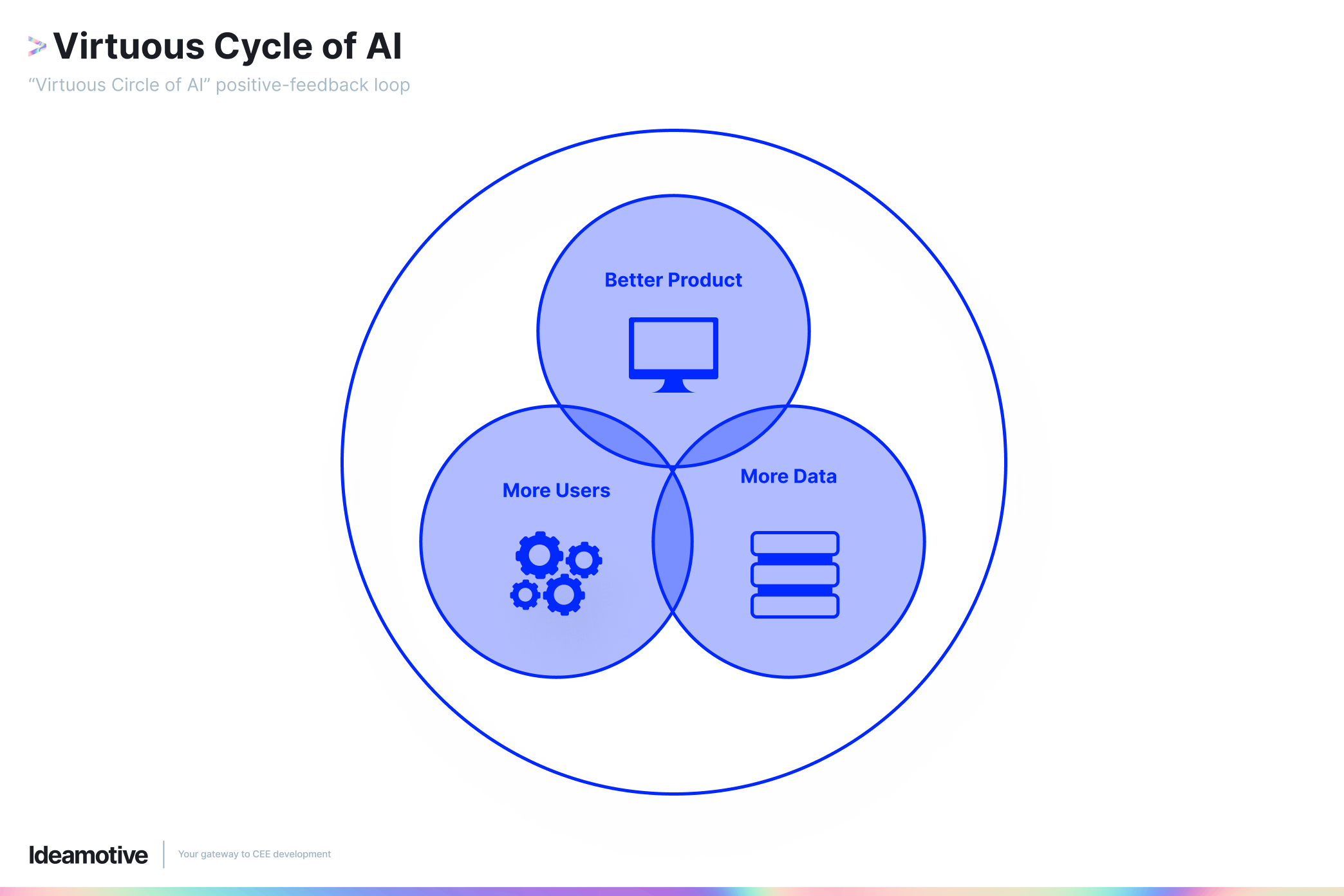
AI-powered solutions enable unified access and control over dispersed data sources through intelligent data virtualization and abstraction layers. Besides, machine learning algorithms can automatically classify, index, and tag data, simplifying its organization and retrieval across various clouds.
AI techniques such as natural language processing (NLP) and intelligent automation can streamline the integration process in multi-cloud architectures. AI-powered tools can analyze different cloud providers' APIs, SLAs, and protocols, providing recommendations and automated workflows to ensure seamless integration. It minimizes manual effort, reduces errors, and enhances interoperability.
How to Mitigate Risk and Improve Resilience: AI-Driven Security
AI can bolster security measures by leveraging advanced algorithms to detect anomalies, identify potential threats, and analyze vast security logs. As a result, AI-powered security solutions enable real-time threat detection and response, mitigating risks and enhancing the overall security posture of the multi-cloud architecture.
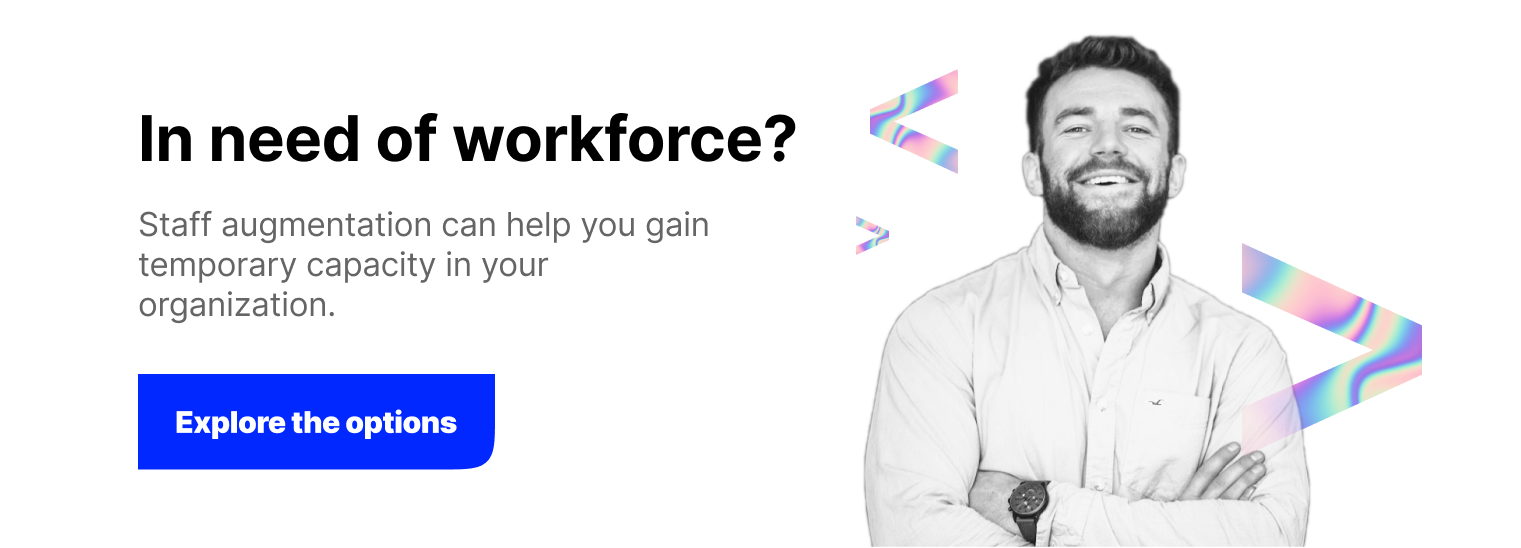
AI-based monitoring tools can provide real-time insights into the performance and health of multi-cloud environments. These tools employ predictive analytics and anomaly detection algorithms to identify potential issues before they impact service availability. By proactively monitoring the infrastructure, AI enhances resilience and reduces the likelihood of downtime.
AI-enabled compliance monitoring with regulatory requirements is crucial for companies operating in multi-cloud environments. AI helps by automatically scanning and analyzing data across clouds for sensitive information or potential violations. AI-powered compliance tools ensure adherence to industry standards, data protection regulations, and privacy policies, mitigating legal and reputational risks.
Summary
AI empowers businesses to optimize their multi-cloud architecture by enabling intelligent workload distribution and resource management. Through advanced algorithms and machine learning, AI algorithms can analyze workload patterns, predict resource demands, and dynamically allocate computing resources across multiple cloud environments.
Furthermore, AI brings a new era of automation, streamlining complex tasks and accelerating digital transformation initiatives. By leveraging AI-driven automation, companies achieve enhanced agility, scalability, and resilience in their operations. Intelligent algorithms seamlessly handle mundane and repetitive tasks, freeing human resources to concentrate on strategic initiatives and innovation.
The benefits of leveraging AI for multi-cloud architecture and digital transformation initiatives are indisputable. Embracing emerging technologies like AI is not merely an investment but a necessity in the dynamic digital landscape. Companies that try to embrace AI will forge ahead, armed with the tools to navigate the complex multi-cloud ecosystem and secure business in the ever-changing digital realm.
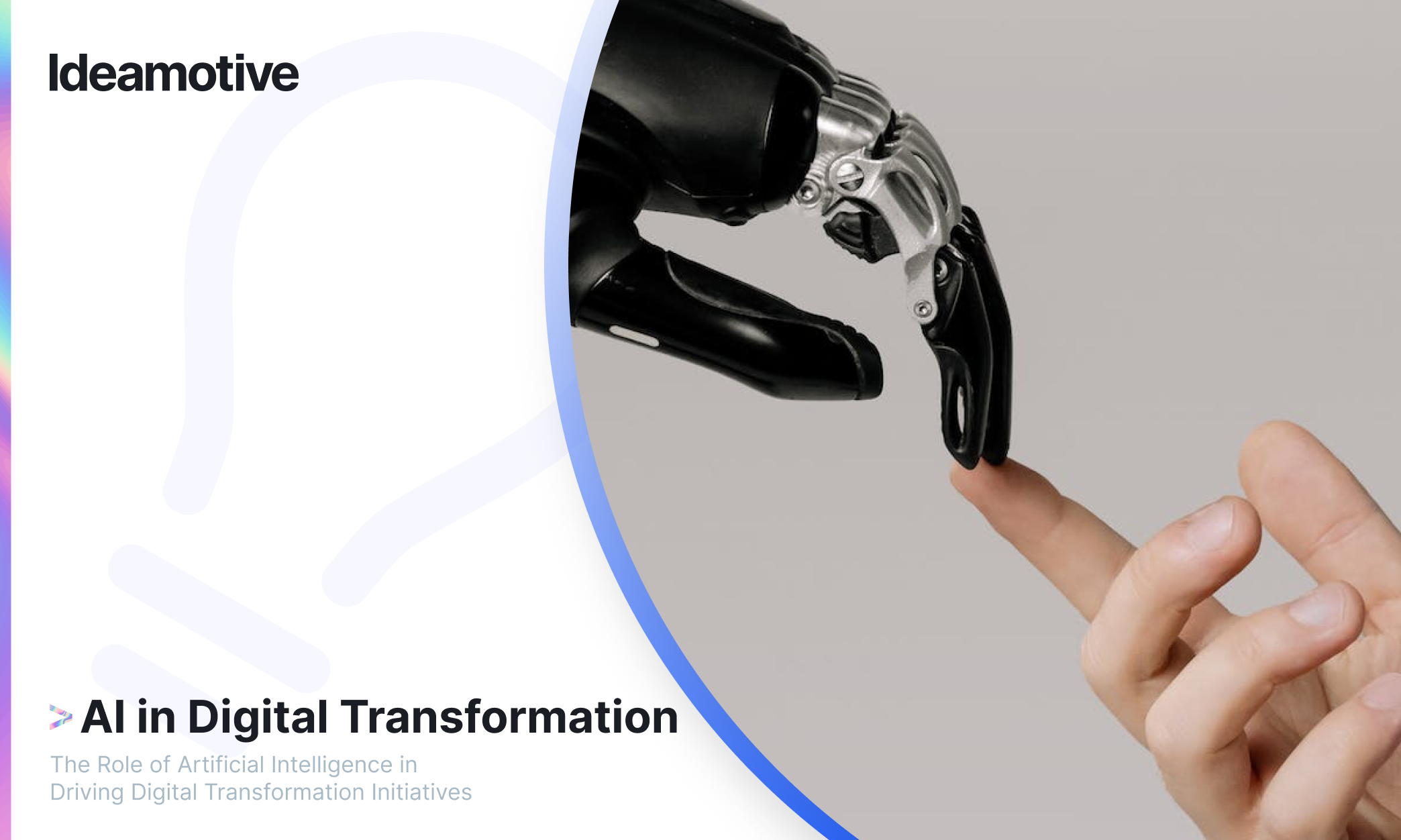


.png?width=2088&height=1392&name=AI%20market%20size%20worldwide%20in%202021%20with%20a%20forecast%20until%202030%20(1).png)


